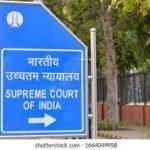Supreme Court Judgment related todispute over property valuation and stamp duty. The appeals, brought by revenue officers, challenge a High Court decision that quashed undervaluation proceedings related to two sale deeds from 2002. The core issue appears to be the proper procedure for determining market value when registering instruments, particularly the requirement for registering officers to provide reasons for believing a document is undervalued before referring it for further assessment. The Supreme Court ultimately agreed with the High Court’s reasoning, emphasizing that merely suspecting undervaluation is not enough; there must be material available and clear reasons provided for the belief.
(A) Indian Stamp Act, 1899, Section 47-A(10) – Tamil Nadu Stamp (Prevention of Undervaluation of Instruments) Rules, 1968, Rule 3, 4, 6, 7, Form 2 – Stamp Duty – Valuation – Sale Deeds – Held that the scheme of the Stamp Act and the relevant rules makes it abundantly clear that the Collector is obligated to communicate the provisional order to the parties concerned in respect of fixation of the correct value of the property and also the duty payable in Form II – In the case on hand, Form II was issued – To that extent, there is no dispute – However, after the issue of Form II, the parties concerned have to be given an opportunity to submit their representation in respect of determining the market value of the subject property – Thereafter, as contemplated in Rule 7 of the Rules 1968, the Collector, after considering the representation if received in writing and the submissions that might have been urged at the time of hearing or even in the absence of any representation from the parties concerned, proceed to pass the final order – In the case on hand, the Collector (Stamps) directly issued the final order without complying with sub-rules (2), (3) and (4) respectively of Rule 4 and also without following Rule 6 of the Rules 1968 – This could be said to be in violation of the Rules 4 and 6 respectively of the Rules 1968 – No error not to speak of any error of law could be said to have been committed by the High Court in passing the impugned order – Appeal liable to be dismissed.
(Para 31 and 32)
(B) Indian Stamp Act, 1899, Section 47-A(10) – Tamil Nadu Stamp (Prevention of Undervaluation of Instruments) Rules, 1968, Rule 3, Form 2 – Stamp Duty valuation – Sale Deeds – Discretion to decide regarding the market value – Expression ‘reason to believe’ – The expression ‘reason to believe’ is not synonymous with subjective satisfaction of the officer – The belief must be held in good faith, it cannot be merely a pretence – It is open to the Court to examine the question whether the reasons for the belief must have a rational connection or a relevant bearing to the formation of the belief and are not irrelevant or extraneous to the purpose of the section – The word ‘reason to believe’ means some material on the basis of which the department can re-open the proceedings – However, satisfaction is necessary in terms of material available on record, which should be based on objective satisfaction arrived at reasonably.
(Para 21)
Chief Revenue Controlling Officer Cum Inspector General Of Registration, & Ors V. P. Babu
Supreme Court: 2025 INSC 44: (DoJ 03-01-2025)






